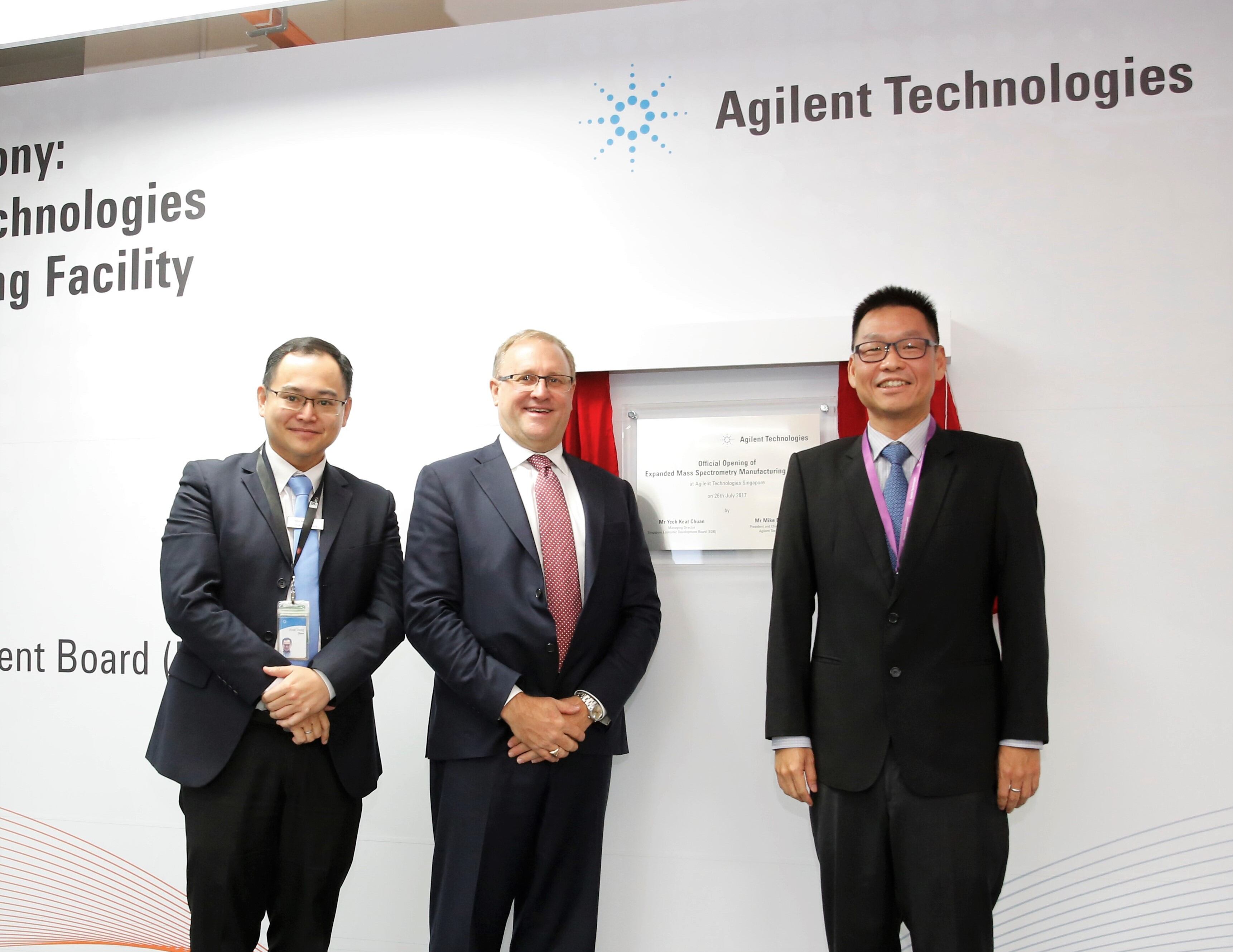The investment will add 30,000 square feet within its existing facility in Yishun and create about 100 jobs in R&D, manufacturing, service and sales over the next five years.
Agilent moved to the Yishun facility in 2002 which currently has manufacturing space of 46,000 sq. ft. The firm employs about 470 people in the country.
Production capacity to increase by two times
Chow Woai Sheng, VP and country general manager of Agilent Singapore, said Asia is experiencing rapid growth and it wants to be where customers are located.
“The expansion enables the Singapore facility to offer complete end-to-end manufacturing, test, and supply chain management, equipped with automated systems,” he said.
“For example, we have expanded Class 10K cleanroom environment for testing and there are plans to add advanced metrology equipment, advanced robotics for productions and manufacturing execution systems (MES).
“The advanced manufacturing systems and automated production technologies will enable production capacity to increase by two times the current capacity. This will support the production of a broader range of high-end analytical instruments, especially our mass spectrometry products in Singapore.
“In terms of R&D capabilities, we plan to make investments on value engineering activities, building out manufacturing capabilities to support additional product lines.”
Asian growth

Agilent Singapore manufactures high-end analytical instruments including LC/MS, lab automation, super fluid chromatography and DNA micro array scanner products.
Such systems provide sensitivity and data quality for profiling, identifying, characterising and quantifying compounds of interest.
Sheng said an aging population and increasing affluence in major Asia Pacific cities have been associated with a rise in personalised medicine.
“Global trade, stringent regulations, and increased public awareness of food safety and food authenticity issues are driving the growing need for food testing. Testing food for harmful chemicals and bacteria is a vital aspect of public safety and international trade,” he said.
“Agilent GC/MS, LC/MS, and ICP-MS systems are widely used to detect and analyse additives, residues, contaminates, essential nutrient elements, and toxic trace elements in agricultural products, foods and beverages.”
There is an increasing need for lab testing to provide the answers to the increasing number of questions that scientists and researchers need to address, said Sheng.
“In addition, the pressure for cost to be optimised in the laboratories continues. This is the economics of the labs. We will continue to help improve workflow and maximise productivity in labs. Reducing costs and maximising lab space are always a priority for many lab managers in all research areas.”
Oxford to be global center for Raman spectroscopy
Meanwhile, Agilent Technologies has acquired a UK-based provider of Raman spectroscopic instruments for the pharmaceutical industry and applied markets for £40m in cash.

Cobalt Light Systems’ (Cobalt) suite of benchtop and handheld/portable Raman spectroscopic instruments enable non-invasive, through-barrier identification of chemicals and materials.
This includes analysing materials hidden inside objects or through opaque barriers such as plastic, coloured glass, paper or skin to reduce the need for quarantines and time-consuming sample processing and testing in pharmaceutical QC and hazardous chemical ID.
Agilent said Oxford will become its global center for Raman spectroscopy.
Phil Binns, VP and general manager of Agilent's Spectroscopy and Vacuum Solutions Division, said Raman spectroscopy is one of the fastest-growing segments in spectroscopy.
"It also provides Agilent immediate entry into this fast-growing segment with a highly competitive, differentiated offering."
Cobalt's customers include more than 20 of the largest 25 global pharmaceutical companies.
The firm has 52 employees and Paul Loeffen, Cobalt CEO, will remain with Agilent as director of Raman Spectroscopy.
Loeffen said: "The combination of Cobalt's patented technologies with Agilent's product-development expertise, manufacturing capabilities, channels and customer base will allow us to scale our operations to take advantage of this rapidly growing market."
Innovate UK granted Cobalt a £180,000 smart award in 2012 and a conditional offer has been signed for a project to develop a low-cost automated system that supports real-time analysis of pharmaceuticals during manufacture, in statistically representative sample sizes.
James Heydari, Smart and Open Programme Lead at Innovate UK, said start-ups can find it difficult to develop, trial and commercialise new products particularly in the pharmaceutical industry.
“For a company that’s still less than 10 years’ old, Cobalt Light Systems’ success in capitalising on the growing market of Raman spectroscopy should be celebrated. Now, the acquisition by Agilent will allow them to scale-up further and reach a wider customer base.”
